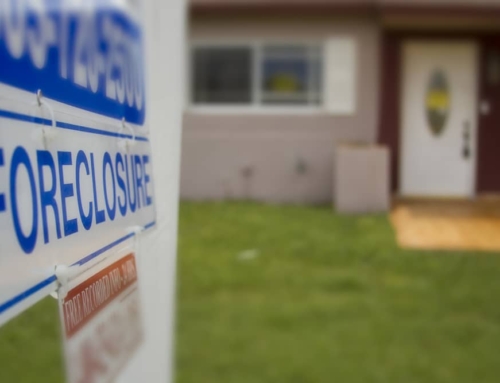Rebecca and her husband are currently renting a 3-bedroom townhouse. Their lease is up next April. She’s pregnant with their second child and they’d like to buy a home in the near future.
With 9 months left to go on their lease, Rebecca is wondering when she and her husband should start looking for a home.
It’s a good question. One of the biggest mistakes renters make is beginning the search for a home to purchase right after signing a new lease. In fact, some renters start looking for a home, and when they don’t find one right away, sign a new lease and continue the search.
Unless your lease gives you the ability to cancel it on written notice, say 45 or 60 days, or if you can find a sub-tenant willing to take over the lease for you (who meets with your landlord’s approval), you could be stuck making all of the payments due under your rental lease – even if you’ve already closed on your new home.
Paying for two homes when you can only afford one is a quick trip to foreclosure or, perhaps, bankruptcy court. In any case, it’s something you should try to avoid. Fortunately, you can take a few steps that can save your wallet from undue stress.
The easy solution is to time your purchase to coincide with the end of your lease term. So if your lease is up at the end of April, as Rebecca’s is, you’ll want to close on your home as close to the end of April as possible.
Working backwards from the closing date, it can take approximately two to three months to close on a home after you and the seller agree to a price. During that time, you’ll be busy shopping for your mortgage (unless you were savvy enough to be preapproved for a loan before you started your search for a home), packing up your current apartment, getting your mail forwarded, and closing down old utility accounts and setting up new ones for your new home.
If it takes 60 to 90 days to close on a home once you’ve got a valid contract, it can take another 60 to 90 days, to find the right home.
During that time, you’ll have to find a buyer’s agent, who can represent your interests while showing you suitable properties that are listed.
Buyer’s agents can help you figure out what you want and need in a home, including which neighborhoods have the best mix of good school districts, parks, shopping, services and recreational amenities. Because buyer’s agents owe you their fiduciary responsibility rather than the seller, they can help you figure out the seller’s motivation for listing the property as well as help you strategize how to best handle the negotiations.
If you start your search for a home six or seven months before the date your lease ends, you should be able to time your search so that you have little or no overlap between renting or owning.
But even with the best of intentions, sometimes the timing just doesn’t work out as you’d hope.
Sometimes the right house doesn’t show up. Or, you end up in a bidding war and lose the house to other buyers. If that happens you could wind up in a situation where your lease runs out and the landlord is pressuring you to sign another.
Before you sign a lease for a year, ask the landlord if you can sign a short-term lease. This might be a 6-month lease, or a month-to-month lease. With either of these flexible lease options, you would be committed to paying rent for just a short period of time. When you do find the house you want to buy, you’d wouldn’t have to worry about paying a rent and mortgage at the same time for too long.
If the landlord insists on a year lease, and you don’t want to move, ask the landlord if you can have a 60-day or 90-day out clause. That way, if you give the landlord 60 or 90 days’ notice, you’d be able to walk away from your lease without paying anything more.
By planning out your transition from renter to home buyer, you can save yourself the agony of wondering if you’ll be on the hook for a mortgage payment and rent at the same time – and instead, focus on your search for a home.
May 26, 2003






Leave A Comment